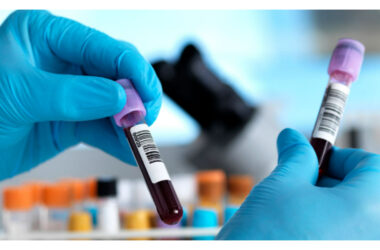People who are addicted to drugs or alcohol often need to go through a detoxification process which is the first most important step towards recovery from any kind of addiction. This process is for someone who is having health problems and struggling to tackle the mental health problems due to the addiction.
Purpose of detoxification
Detox is the first process of any rehab therapy in which all traces of the substances are removed from the body to make the person physically stable and begin the addiction intervention services.
The purpose of the detoxification process is to deal with the physicality of addiction so that the patient gets prepared mentally to address the psychological factors of their addiction. This also serves as a part of an intensive addiction rehab program which usually happens within a rehab facility center equipped with trained and professional specialists.
Arrow Passage Recovery in Massillon, Ohio provides drugs and alcohol addiction treatment or dual diagnosis through residential outpatient and aftercare. Their addiction treatment specialists are trained to treat their patients with a personalized treatment program that is sure to provide long-term success to every patient.
During the process when the person stops drinking or using drugs and the substances are gradually removed from the body, the brain starts having difficulty with the sudden drop of the addicted substance. This usually causes the person to have unpleasant symptoms known as withdrawal symptoms.
Withdrawal symptoms
Withdrawal management is the most important part of the medical detoxification program. The symptoms of withdrawal can be challenging affecting both physically and psychologically, hence it needs to be managed by well-experienced professionals. The type of withdrawal symptoms and their severity depends on:
- How long the person has been addicted to alcohol or drug
- The substances they are addicted to include alcohol, opioids (heroin, cocaine, methadone, and certain painkillers), benzodiazepines.
- The amount they have been consuming
- Their physical and mental health
The detoxification process for each person is different and unique and cannot be summed up as equal for all.
Physical symptoms:
- Nausea, vomiting, diarrhea
- Shaking and shivering
- Sweating
- Chills or high temperature
- Increased blood pressure and heart rate
- Headaches and abdominal cramps
- Bone and muscle pain
- Exhaustion
- Unpleasant dreams
Psychological symptoms:
- Anxiety
- Irritability and confusion
- Insomnia
- Depression
- Agitation
- Concentration problems
- Tremendous mood swings
- Excessive cravings for the addicted substance
Severe withdrawal symptoms can be:
- Hallucinations
- Delirium tremens or Seizures
Detoxification Process
To cope with the withdrawal symptoms, the patient is given controlled medication which is a part of the detoxification process. No medicine completely prevents the withdrawal symptoms but few medicines are given so that the patient can get good sleep, anxiety, and depression are reduced, and tackle other problems.
Detoxification is a process of 7 to 10 days but it usually varies from person to person depending on factors like:
- Amount of alcohol or drugs consumed
- The severity of withdrawal symptoms
- Mental and physical health
No matter what is the setting, addiction treatment begins with a detoxification period followed by therapeutic and continued medical care. A de-addiction rehab program begins only after completing the detoxification process successfully.
















